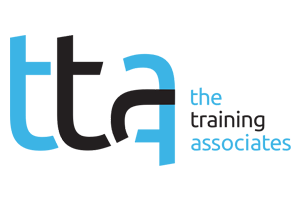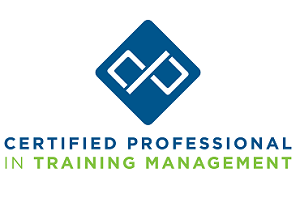Did you know that public speaking tops the list of common phobias, ranking just above the fear of death?
Being able to communicate is one of life’s essential skills. However, investing in practical communication skills development seems to be missing from many corporate learning and development (L&D) budgets.
Everyone has the potential to truly shine when they communicate effectively. Understanding the qualities that let your charisma shine through, underpinned with a big dose of confidence and courage to help overcome your fears, will enable you to drive impact through your public speaking efforts.
So, what is it that makes people so fearful of public speaking? And more importantly, what can you practically do to “shine” when you communicate with others? Let’s break down the three core elements that serve as the foundation to being an inspiring and engaging communicator — our confidence, charisma and courage, to find out how.
Confidence
The Cambridge Dictionary defines “confidence” as “the quality of being certain of your abilities or of having trust in people, plans, or the future.’
Shortness of breath, feeling like you “can’t think straight,” sweaty palms and pacing the floor are all common symptoms of feeling uncomfortable and outside of your comfort zone. The reason we feel this way, according to “The Human Element” by Will Schutz, is because from the day we are born, we are driven by three fundamental fears: the fear of being ignored, the fear of humiliation and the fear of rejection.
The fear of standing up and speaking to people is one shared by most people across nearly all cultures. Play that out in a scenario where you are about to do a presentation. All three fears could possibly be battling for your attention, leaving you wondering “what if” …:
- I forget what to say.
- I am judged or laughed at.
- I get something wrong.
- I come across as boring or uninteresting.
- I flop like I did last time.
- I’m not as good as my colleague.
- I can’t manage the audience.
- They see that I’m nervous.
You are not alone if you have felt nervous about any of the above factors. They are, after all, some of the most common fears people have when communicating to others. In fact, the nervous energy they create is a force which, when harnessed, can be beneficial. The important thing is to acknowledge that we all encounter different feelings, either physical or mental, when public speaking. Once these feelings are acknowledged, you can do something about moving them aside or managing them so that they don’t impact you (or the audience) in a negative way.
Here are some examples of how to harness the fears outlined above for more impactful communication:
- What if I forget what to say: Be prepared with content, ask questions to the audience, tell a personal story related to what you are talking about or take a few moments to gather your thoughts.
- What if I am judged or laughed at: Laugh it off, and don’t take it personally.
- What if I get something wrong: Admit your mistakes; don’t be afraid to be human and vulnerable, correct your mistake(s) by finding the right answer or setting out to find it.
- What if I come across as boring or uninteresting: Get to know now your strengths and charismatic qualities. Don’t be afraid to have fun, smile and be positive.
- What if I flop like I did last time: Think about why you think you failed, the lessons you learned and how to apply them for success this time around.
- What if I’m not as good as my colleague: Think about your unique strengths and qualities that make you authentic and special.
- What if I can’t manage the audience: “Read the room;” move around (or stand up, if in a virtual setting), and don’t be confrontational. Find out why your audience might be behaving in a certain way. For instance, is it because they are not getting a chance to contribute? Are they shy? Are they distracted?
- What if they see that I’m nervous: Slow down and pause. Take a deep breath and share with the group that you are nervous. In doing so, you’ll gain much more empathy from them and it will make you seem more human.
Delivering any kind of communication effectively, whether it be a presentation or facilitating a discussion, is about achieving a level of confidence that allows us to be ourselves and let our personalities shine through.
Charisma
The Cambridge Dictionary defines “charisma” as “a special power that some people have naturally that makes them able to influence other people and attract their attention and admiration.” Would you rather be a person who lights up the room when you walk in … or walk out?
Charisma is about letting your “being” shine through – all those X-factor qualities that you own, that make you unique, that connect and engage you with others.
When it comes to charisma, it’s not what you do but how you do it. If you think about charismatic people, they are often described as:
- Interested in others and interesting to others.
- Role models and great visionaries.
- Optimistic and happy.
- Empathic, supportive and caring.
- Confident in who they are.
- Open, transparent and vulnerable.
- Quick at building relationships and trust.
- Passionate and enthusiastic.
- Storytellers.
These are all traits that, by raising your self-awareness, can be fine-tuned to have the greatest impact and influence on others. When we are charismatic, and underpinned with our confidence, we are more engaging. And when we are more engaging, we communicate in a way that is inspiring and memorable.
Grab a friend, colleague or even family member and practice delivering a story or presentation to them. Get feedback about how you engaged with them. What qualities did you demonstrate? Did you show any of the traits of a charismatic person? What else can you do to let your light shine up the room and have the audience hanging on to your every word?
Courage
The Cambridge Dictionary defines “courage” as, “The choice and willingness to confront agony, pain, danger, uncertainty or any of our fundamental fears.” Courage is not without the absence of fear. Courageous people do feel fear, but they are able to manage and overcome their fear so that it does not stop them from taking action.
Courageous people have trained themselves to manage their emotional response to fear so that they manage it, rather than it managing them. The next time you have been asked to deliver a presentation and aren’t feeling brave, try asking yourself:
- What am I actually afraid of? Should I be afraid of it?
- What harm can this “thing” actually do to me or others?
- What could happen as a result of my actions and/or inactions?
- What is the worst that could happen?
The logical answer is that, probably, there is nothing to be scared of at all. Whatever your fear is, it’s not going to hurt you, it’s not going to hurt anyone else and, actually, the result may very well be positive.
Public speaking may be fear-inducing for even experienced learning leaders. However, our confidence, charisma and courage can help us communicate with impact and influence. Don’t let fear hold yourself, or your ideas, back: It’s your time to shine!




